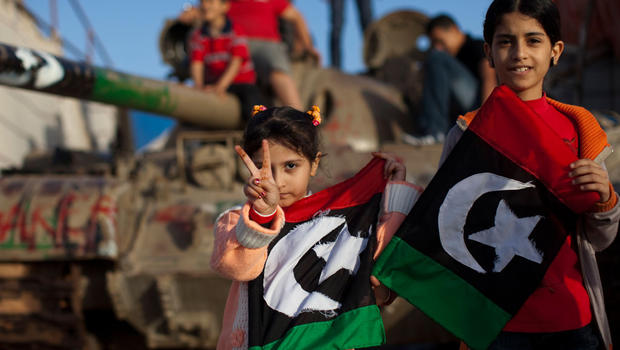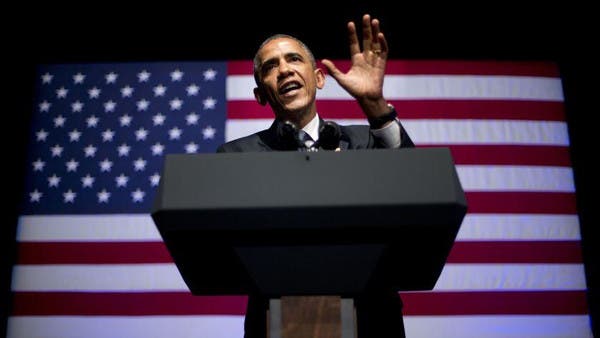 |
| Libya's Lost Generation |
But before turning an eye towards the extent to which radicals have infiltrated the political and social fabric of Libya itself, it is important to consider the ripple effect of toppling Gaddafi, and what role it played in nurturing the Islamist insurgencies many other countries in the region are now grappling with. Perhaps the most jarring example of illicit weapon flows from Libya fueling conflicts abroad however, can be found in Mali. The first wave was caused by ethnic Tuaregs within the country’s security services taking their weapons and fleeing to Mali following the fall of the regime. Hoping to assist the Tuareg minority in that country launch an insurrection of their own, it instead was hijacked by the Islamist groups such as Ansar Dine with whom they had formed an uneasy truce in hopes of driving Malian forces from the north of the country. Indirectly or not, the Libyan rebels played a key role in the war, allowing weapons to be funnelled out of the country through Tunisia and Niger and into Northern Mali. While ISIS made waves last summer when it declared the establishment of a “Caliphate” in parts of Iraq and Syria, Mali quietly gained the notorious distinction of being host to the largest swathe of sovereign territory controlled by a terrorist organization.
Due to the efforts on the part of the UAE and Qatar, who in defiance of an arms embargo supplied arms to several militias, most of whom later refused to disarm once the conflict was over, a fertile breeding ground for terrorist groups was created. Many of these very same fighters and militias would go on to play significant roles in other terror hotspots in nearby countries, affiliating themselves with groups such as Al Qaeda and ISIL. Qatar in particular, who continued to funnel arms to Libyan militias as late as September 2014 (two years after the attack on the American compound in Benghazi by a group nominally supported by Qatar), seemingly took no lessons away from Libya, for they continue to arm radical groups in Syria, constructing a potential post-Assad power paradigm that is increasingly likely be eerily similar to that which we now have in Libya.
The government which supplanted Gaddafi’s regime in the years since its fall can only be considered an unmitigated disaster. This is the case for several reasons, chief amongst them being the totally outsized role played by the tribal militias who deposed Gaddafi. As previously mentioned, upon the war’s conclusion just about every militia, rather than disarming, instead turned towards consolidating and expanding their territorial holdings. As a result, the interim National Transitional Council that was appointed to oversee a speedy return to free elections had its hands tied. Its largest source of funds, oil, was virtually cut off as the majority of the country’s ports, fields and refineries were in the hands of militias who refused the NTC’s demand that they disarm and stand for election if they wished to play a role in government. Entrusting the momentous task of implementing regime change to a group of insurgents that the West did not seem to fully understand backfired spectacularly, especially when you consider how atrocities against civilians have still continued post-Gaddafi, with hospitals being the site of kidnappings and rocket attacks.
The narrative widely peddled in the media as to why intervention was necessary in the first place claimed that Benghazi was the site of an impending massacre by Gaddafi’s forces. And yet reexamining the regime’s actions in the months before intervention reveals a portrait of relative restraint. While the actions taken by Gaddafi’s forces would not have been acceptable from Western forces, intervening only seemed to worsen the situation. Initial reports on casualties seemed to vindicate NATO action; in September 2011 rebels claimed that 30,000 had been killed. However the NTC’s subsequent investigations following the war poked several holes in this figure, revising the number down to 11,500 including regime and rebel fighters, as well as missing persons. In the years since the conflict however, supposedly a period of peaceful transition towards democracy, 2012 and 2013 both saw low level conflict that is estimated to have killed roughly 500 a year. 2014 essentially saw the return of open civil war, and with it the deaths of over 2,750, three years removed from a supposedly successful intervention.
“Throw away your weapons, exactly like your brothers in Ajdabiya and other places did. They laid down their arms and they are safe. We never pursued them at all.”
“Throw away your weapons, exactly like your brothers in Ajdabiya and other places did. They laid down their arms and they are safe. We never pursued them at all.”
As the legacy of Western intervention in the country becomes more clear, so is just what really happened. An alternative narrative has emerged, that Libyan nationals in Switzerland, sympathetic to the rebel forces who were on their last legs in Benghazi, leaked false information pertaining to a potential massacre of the besieged troops and civilians in the city. Regardless of how true this claim was, their plea for help worked; NATO swiftly intervened and completely reversed the tide of the war, handing the rebels who were previously on the brink of defeat a stunning victory. Lending credibility to this story are the numbers from Syria. Before the Libyan intervention commenced in March of 2011, protests had been largely nonviolent and the regime response, criminal as it was, had not yet morphed into the all out war on its citizens that it would soon become. But by that summer, it is not unlikely that the Syrian opposition took up armed insurrection in hopes of provoking a regime response that would trigger NATO involvement similar to what transpired in Libya. What did occur was a drawn out war with no end in sight four years after the fact. And now as the Russians seem intent on taking a more active role in the war there, it's concerning that the only lesson President Obama took away from Libya was that the United States and its allies didn’t intervene enough. In an interview with the New York Times last year he said “I think we underestimated the need to come in full force. If you’re going to do this there has to be a much more aggressive effort to rebuild societies.” If NATO had more carefully studied the conflict it entered, there might not have been any need to rebuild in the first place.










